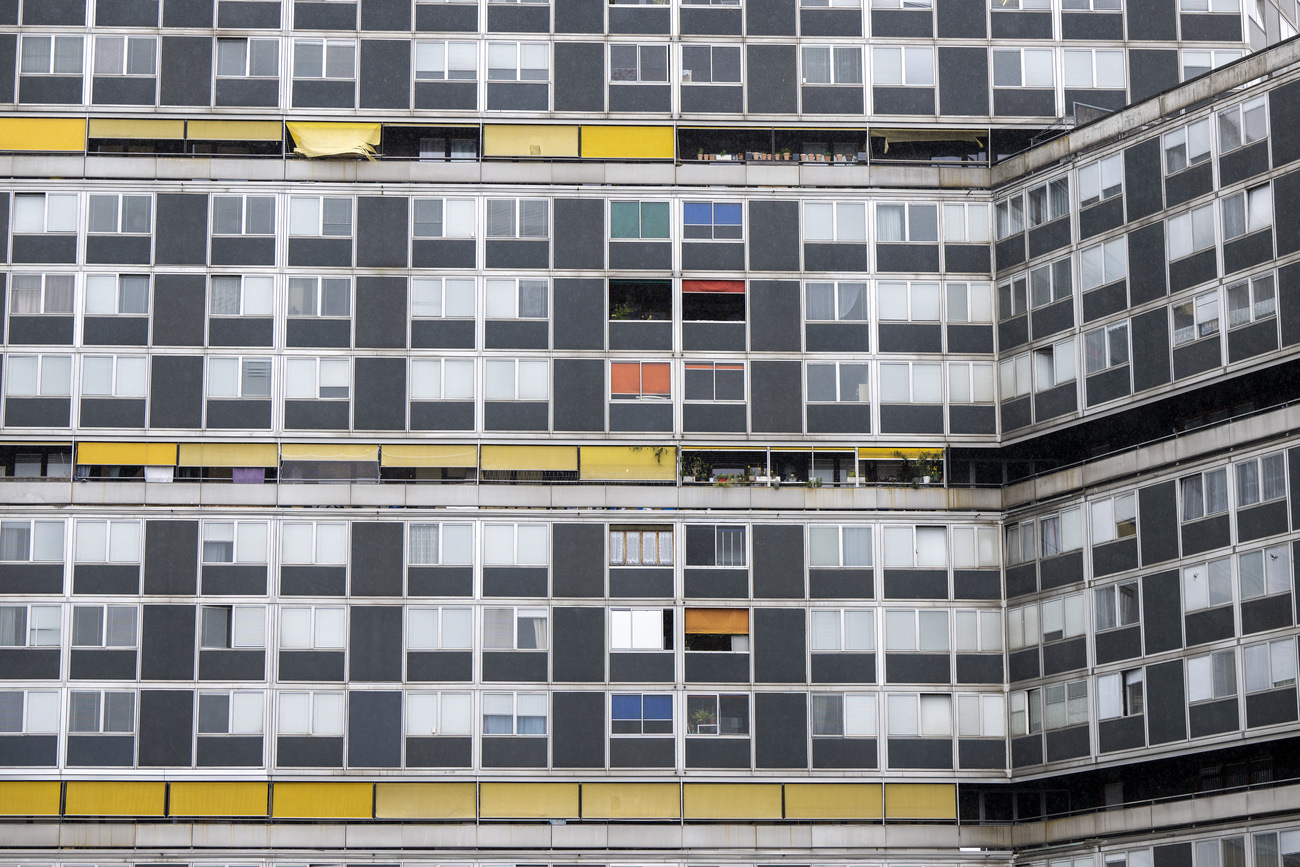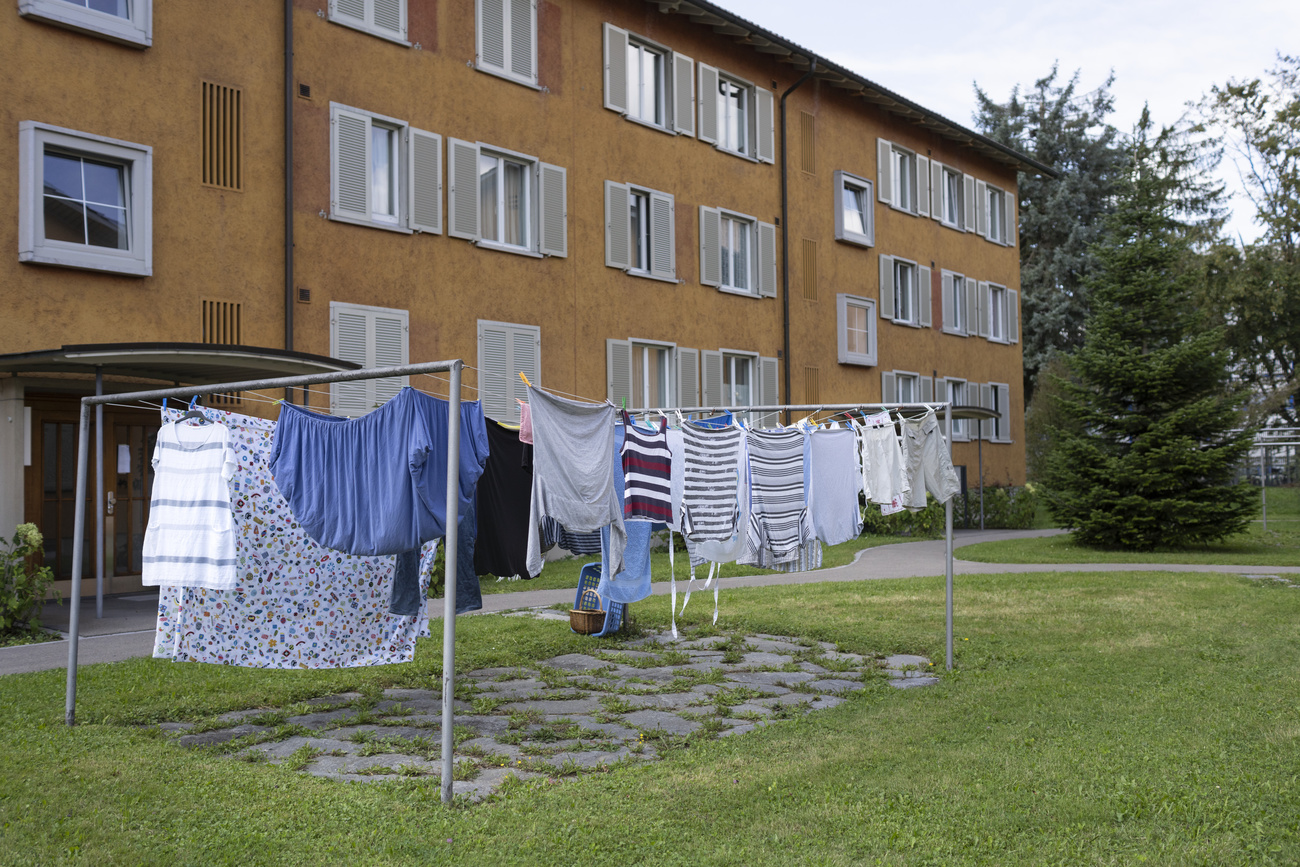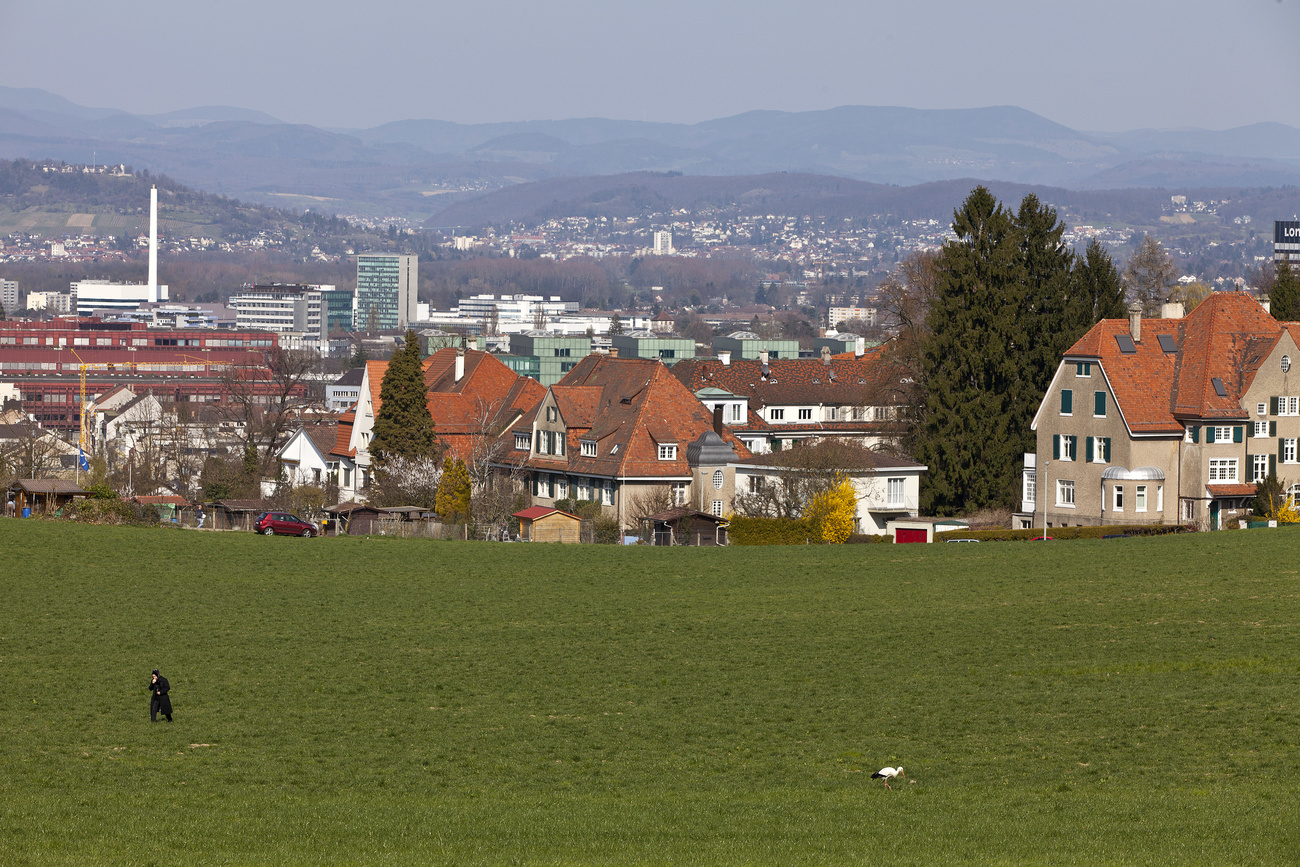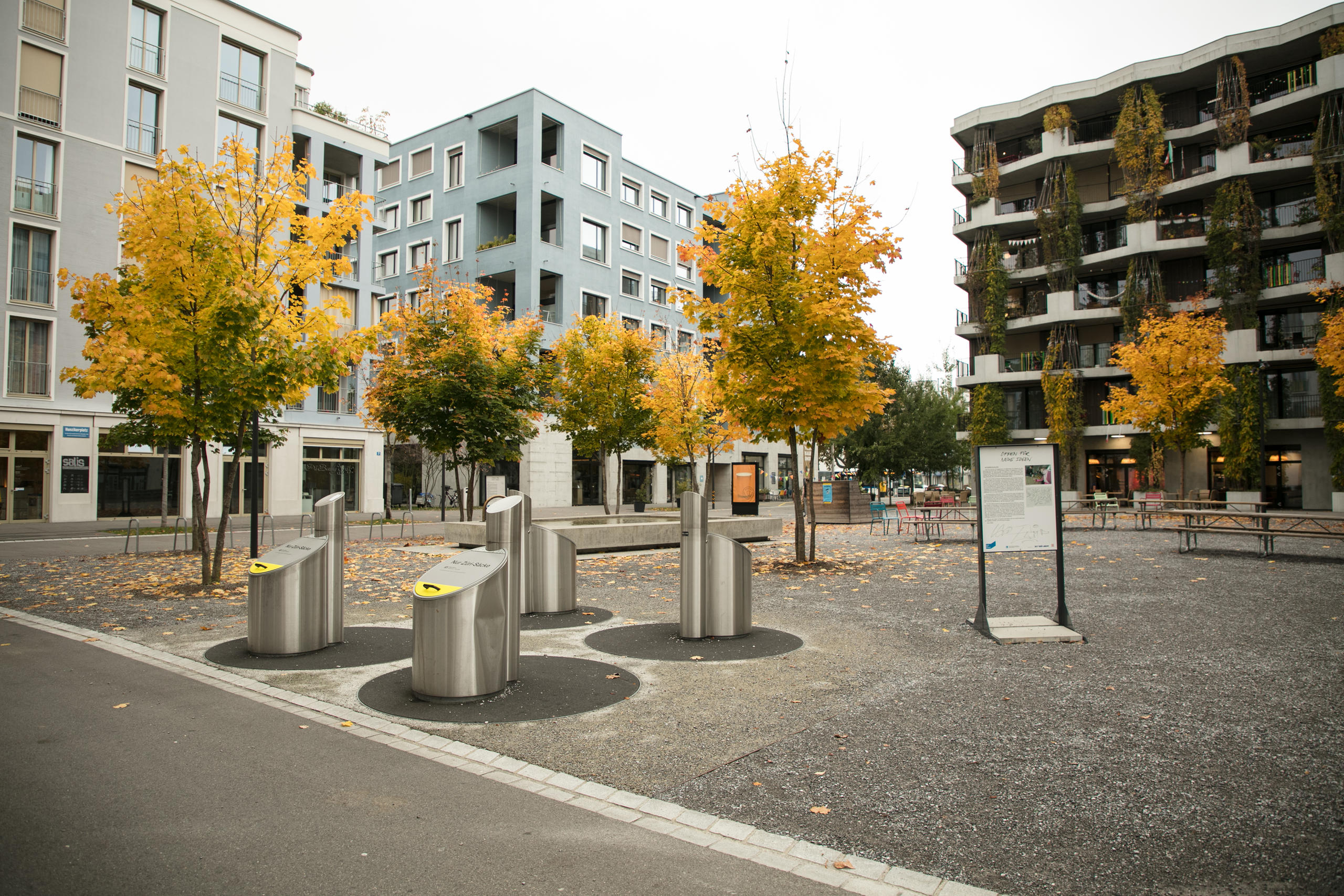
‘Myth’ of spiking Swiss rents comes under scrutiny

Crisis? What crisis?! A think-tank takes provocative aim at what it labels the “myths” of the Swiss housing market. Tenants’ groups and left-wing politicians are not impressed.
General opinion when it comes to Switzerland’s accommodation market in 2023 is not positive. Rents are going up, availability is going down, and when population growth is added to the mix, the country is heading towards major problems.
But is it? Not necessarily, or at least “not yet”, says Avenir Suisse. In a reportExternal link published this week, the liberal think-tank claims that much of the debate is based on “myths” and “anecdotes” rather than facts.
Housing costs “have not risen disproportionately over the years, but in parallel with incomes”, the study says. Rent and energy costs have for decades accounted for a stable 15% of income; when only rent is considered, this figure falls to 11.2%.
“Rents are high in this country because incomes are high,” the think-tank says, but “few elements indicate a long-term national rise”. “The market is still functioning.”

More
Wealthy Switzerland is a country of tenants
Hotspot Zurich
Even in cities like Zurich – often in the news for gentrification issues or 3.5-room apartments costing CHF7,590External link ($8,628) per month – Avenir Suisse reckons the headlines are over-hyped.
Swiss law ties rents for existing tenancies to inflation and interest rates, which means they have risen only moderately in the past years, it writes. Study author Marco Salvi told Swiss public radio, SRF, that many tenants in notoriously pricey Zurich have been living in the same place for 20 or 30 years, which means they are getting “a bargain” – that is, they can rent a three-room flat for an average of CHF1,700 (note that an average monthly gross salary in Switzerland is around CHF6,500).
That’s CHF500 less than the average three-room rent price for new tenancies, the study notes. In Geneva, the difference between existing and new rents is even bigger, at around CHF750. In other cities and outside urban centres, the discrepancy is less; in St Gallen, moving into a new apartment might even save you a few francs per month.
This explains why so few apartments are available in cities, the study writes: it’s simply not financially attractive to move.
This is also likely to be the reason why almost everyone you speak to in Switzerland who has tried to find an affordable apartment in the past few years has complained about how hard it is.
The low vacancy rate, which fell from 1.72% in 2020 to 1.31% last year, should, however, be seen in perspective, Avenir Suisse adds. Official statistics only count “vacant” apartments which are registered as such – not apartments where a new tenant seamlessly takes over from an old one, which could in turn be a sign of a well-functioning housing market.

More
How to squeeze millions more people into Switzerland
Looming problems
Of course, none of this will come as much consolation to somebody who actually wants to, or needs to, move. Nor to the majority of tenants facing hikes in the coming months due to inflation and the raising of a national reference interest rate for rent.
There’s also warnings of a crisis coming down the line. Last week, real estate experts said Switzerland was unprepared for a population that is growing faster than official statistics predict: this year, it could increase by a record 148,000 people, rather than the 70,000 foreseen by authorities, they said.
To avoid the country becoming a “new Monaco” – i.e. a place of scarce and pricey housing – the experts called for eased zoning laws and more development. Others, such as the right-wing People’s PartyExternal link, say it’s necessary to curb immigration, full-stop.
The Avenir Suisse study, for its part, says that while immigration from surrounding European countries has had some impact on rising rents over the past decades, it’s not fully responsible. And immigration has also had some positive effects in spurring development.
However, the report says, “construction activity has been too low”. Some 10,000 extra housing units need to be built each year to maintain an equilibrium in rent prices. But “appeals and judicial obstacles hinder the quick completion of construction works, particularly in big cities”, the report writes.

More
Cooperative living: a hip alternative for the Swiss
Cooperate, not speculate
Zurich’s finance minister Daniel Leupi denies that construction is at a standstill, at least in his city. As for planning appeals, he told SRF, these remain “an element of the rule of law” – and (incidentally) most are lodged not by tenant groups but by homeowners who aren’t eager to see construction work on their doorstep.
Tenants’ association ASLOCA meanwhile respondedExternal link to the Avenir Suisse study by saying the real problem is elsewhere: tenants bear the burden of contesting rents they deem too high, rather than the onus being on landlords to justify them. ASLOCA says landlords squeeze out over CHF10 billion in unjustifiably high rents each year.
The left-wing social democratic party also commented on the study, blaming “price-hiking property owners” for high rents in cities. The country needs more cooperative housing, the party said: affordable, community-style models, promoted or subsidised by state authorities.
Such cooperative models enjoy a solid historic reputation in Switzerland, especially in urban parts of German-speaking regions, even if they make up just 2.8% of households – and even ifExternal link not all residents are necessarily the poorest in society.
For Avenir Suisse, however, the panacea of cooperatives is another myth: “providing accommodation at a price below its [market] value leads to a redistribution which is untransparent and unfair”, it writes. It says a better solution would be to stay away from subsidies and to give financial help directly to those struggling to make their rent each month.

In compliance with the JTI standards
More: SWI swissinfo.ch certified by the Journalism Trust Initiative


























You can find an overview of ongoing debates with our journalists here . Please join us!
If you want to start a conversation about a topic raised in this article or want to report factual errors, email us at english@swissinfo.ch.